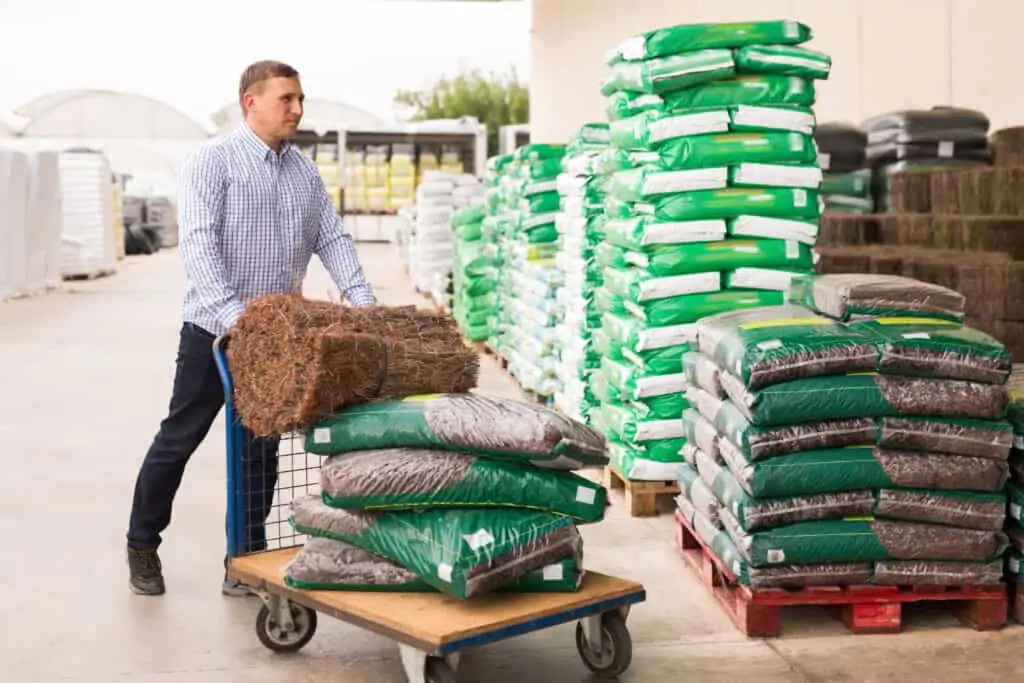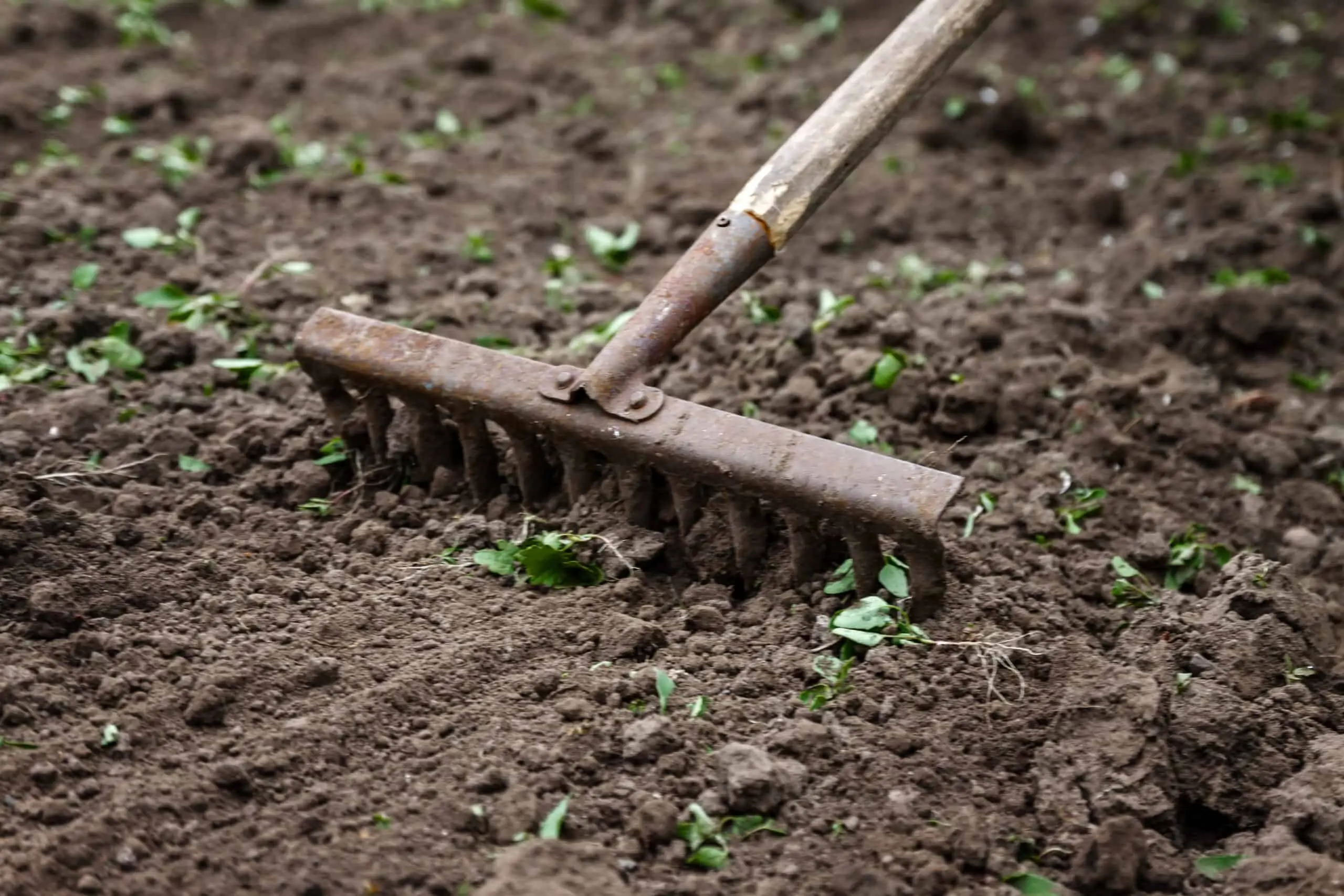As an Amazon Associate I earn from qualifying purchases.
When you have been composting for years on end you will eventually start gathering a large amount of compost. This is what will become the lifeblood of what you are going to use to make your entire garden flourish and become the greatest it can be. However, knowing just when to start mixing in the compost is a challenge that many are not always aware of. As there are specific times when you will need to spread compost around your garden.
The best times for spreading compost across your entire garden, or just through your herb garden, is in spring or autumn. During these seasons, the plants will be able to use the new nutrients the most, usually because they are experiencing a burst of growth or getting ready to hibernate. Autumn is the season when plants are shedding leaves, and the ground is ready to be given a boost, doing so now will mean that the compost mixes in properly with the soil.
You need to understand when to use the different types of compost, and when it is best to have these composts spread across your lawn. Each type of compost has its unique times, with many people only learning when the best time is to spread something in their garden after a few years. You need to understand how to do this properly, as it will have a direct influence on how your garden is growing.
When to use fresh compost?
Fresh compost will have wildly different things in it than store-bought compost will, with many people not always realizing that the compost you make can be slightly differently balanced. This is why you should use fresh compost preferably during the spring, as this will be the best time for your plants to grow. Fresh compost will have an invigorating effect on your entire garden, with spring rains causing the soil to self-balance.
Fresh compost will have everything you have added to it over the last few years in it, this means that if you have added too many acidic things, the compost will need to be adjusted. Learning when your garden needs the fresh compost you have made will greatly affect how you are using it. Many times, knowing when you can use the compost will greatly affect how many compost bins you have around the house.
It is worth noting that many people use their fresh compost throughout the year when they have greenhouses, this allows them to never have too much compost. As you are creating more and more compost you will see that it is needed to spread the compost around the lawn, garden, and pots to ensure healthy soil. Learning this balance naturally is one of the most important parts of owning a compost bin.
When to use bagged compost?

Fresh compost is a great way to make your garden flourish when you least expect it, however, fresh compost can be unpredictable. This is why you will need to buy compost now and then, or maybe you just don’t have space for a bin, buying compost will allow you to balance the soil. You should use bagged compost in Autumn, to help clear the soil as well as when planting new plants.
The most important part of bagged compost is that it does not have the unpredictability that your fresh compost will have. Using the bagged compost will therefore help to reduce the total acidity that is in your soil if that is your problem. While it can also help to increase acidity, this is the most important part that you will need to learn. You can measure how your soil is doing and by buying the right compost you can easily rebalance the soil.
Further, because the bagged compost can easily rebalance the soil you can rest comfortably knowing that the soil will mix easily with the compost. Mixing in the compost during autumn will allow the soil to absorb the nutrients during the winter, with the first rains of spring helping to mix everything further. Getting the soil back to a state that allows growth is a vital part of getting your plants to grow fast and safely.
The Problem With Spreading Compost at the Wrong Times
As healthy as compost will be to your garden, when you are using them at the wrong time it will cause nothing but damage to your soil. Many times, you can see that compost too early or late in a season will burn your plants. While using compost much too early will cause it to suck up all the nutrients already in your soil.
This is what causes damage to your plants, the compost sucks the nutrients that your plants need from the soil. Which in turn causes the plants to stop growing, which stresses you out as your plants become more and more damaged. Naturally, to try and save your plants, you add more compost, which just further damages your plants as there are no more nutrients available.
When you are using compost in the wrong season it means that the compost cannot transfer its nutrients properly, meaning that the compost does not mix in properly with your soil. Usually, these seasons are summer and winter, as they are both the extremes in temperatures that your house might go through. In winter, the ground usually becomes so cold that the compost and soil freeze, while in the summer all the moisture from the compost is sucked away into the ground.
Can I Just Spread Compost On Top Of The Soil?
This is heavily dependent on two factors, the type of soil you have and the type of compost that you have created. Most of the time it should be fine to sprinkle the compost on top of the soil, then watering it to make sure everything spreads. If you are adding compost to grass it is even easier, you should simply spread the compost on the grass then water the grass.
However, if the soil is dry and hard you should water the soil before spreading the compost, as this will loosen the soil. You should then spread the compost on top of the wet soil then start to mix everything using a spit fork throughout the garden. Tilling and twisting to the soil until everything is air rated and loose.
If you are using bagged compost you will have to work towards getting a fine layer of compost across your entire garden. Usually, because this compost is not as fine as the compost that you will be making yourself, bagged compost has quite a few larger pieces in it. This is what will cause the problem, as larger pieces of compost do not easily mix with the ground.
How Can I Prepare Compost for Spreading?
Before you just grab the compost from the bin and start spreading it you will need to ensure that it is slightly dried out. With a few turnings being done days before you are planning on using the compost, this will ensure that there is an equal spread. Your compost will not be equally moist either, which means you will need to ensure that everything is nice and wet before you use the compost as well.
Bagged compost does not have this issue, which is why you can just grab the bags and use them where and as needed. Further, it should be noted that many people do spread out their compost somewhere for a few days before using it, helping to dry out the moisture made by the earthworms. This serves as a good chance for any of the bugs that would attack roots if given no other choice to escape as well.
However, once you have done this you can easily spread the compost throughout your garden, with the now perfectly moist and dry compost there to ensure that your plants continue to grow. As you continue to use the compost you will see which plants prefer drier compost, while others prefer to have much more moist compost. Each plant in your garden will have a specific moisture and compost mix that you will learn to feed them with.
Conclusion
You must know when and how to feed your garden the right amount of compost, with many people not always aware that there are limited places and ways t use compost. Making sure that the compost is perfect for your garden is something that only you will be able to predict properly. Always make sure that your garden is ready to be sprinkled with the right amount of compost, which will help your garden grow properly.
However, whatever you do, please make sure that the compost is not too acidic or leaning towards too-based, as both of these will damage your plants!
Other Articles You’ll Enjoy
Can You Compost Oats? (A Guide to Oatmeal and Oat Products)
At A GlanceYes, you can compost oats and oatmeal as they are organic materials that…
Can You Compost Oil? (Yes, but only a little…)
At A GlanceIt’s not recommended to compost oil as it can cause several issues in…
Composting Nectarine Pits – What You Need to Know
At A GlanceComposting nectarine pits can be a bit challenging due to their hard and…
Composting Newspaper with Color Ink – What You Need to Know
At A GlanceYes, you can compost newspaper with color ink, but it’s preferable if the…
Can You Compost Noodles? A Starchy Foods Composting Guide
At A GlanceYes, you can compost noodles as they are a biodegradable organic matter. Whether…
Can You Compost Nut Shells? (Yes…but probably don’t…)
At A GlanceYes, you can compost nut shells, but there are certain considerations to be…

